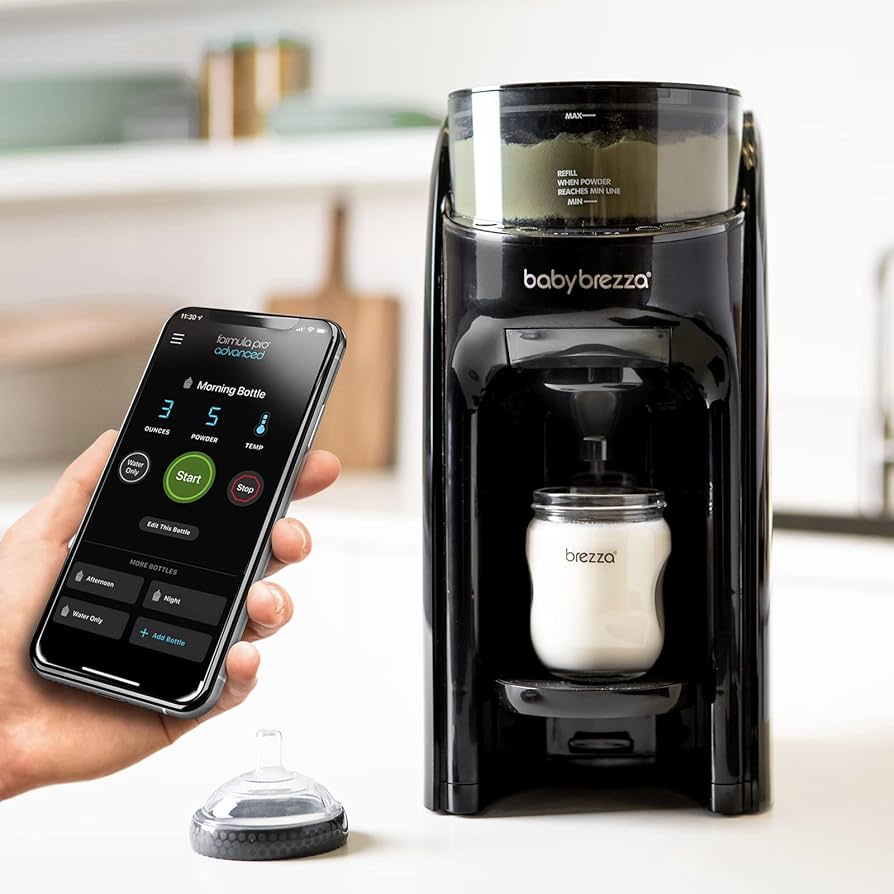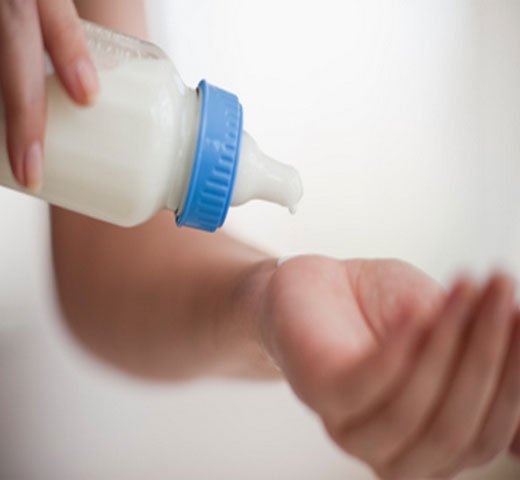Breast feeding or bottle feeding is a decision every parent must make based on individual circumstances and preferences. This article will discuss the benefits and drawbacks of both options to help parents make an informed choice for their baby’s nutrition.
The Benefits Of Breastfeeding
Breastfeeding offers numerous benefits for both the baby and the mother. The nutritional benefits of breast milk are unparalleled, providing optimal nourishment for the baby’s growth and development. It contains essential nutrients and antibodies that boost the baby’s immune system, protecting against infections and diseases.
Moreover, breastfeeding creates a unique bonding experience between the mother and her baby, strengthening their emotional connection. The skin-to-skin contact during breastfeeding promotes closeness and affection. Breastfeeding also offers long-term health advantages for the mother, including a reduced risk of breast and ovarian cancer.
Overall, breastfeeding is a natural and beneficial way to provide optimal nutrition and build a strong bond between mother and baby.

Credit: www.amazon.com
The Advantages Of Bottle Feeding
Bottle feeding offers convenience for parents on the go. It allows for easy and quick feeding without the need for preparation or sterilization. Additionally, bottle feeding allows fathers, grandparents, and other caregivers to take an active role in feeding the baby.
The ease of feeding with a bottle allows for more flexibility in scheduling and allows for more people to bond with the baby during feeding time. Moreover, bottle feeding can prevent the discomfort that some women experience during breastfeeding. It offers a practical solution for working mothers who may not have the ability or desire to breastfeed.
In conclusion, bottle feeding provides convenience, flexibility, and involvement for parents and caregivers while ensuring that the baby receives proper nutrition.
Factors To Consider In The Decision-Making Process
When deciding between breast feeding or bottle feeding, there are important factors to consider. Health considerations play a significant role in this decision-making process. Ensuring the well-being of both the mother and the baby is crucial. Lifestyle factors should also be taken into account, as they can impact the feasibility and practicality of breastfeeding.
Having a reliable support system is essential, as it can provide the necessary guidance and assistance throughout the breastfeeding journey. Ultimately, the decision should be based on what works best for both the mother and the baby, taking into consideration their individual needs and circumstances.
By carefully considering these factors, parents can make an informed choice that promotes the health and happiness of their child.
Educating Yourself About Breastfeeding
Educate yourself on breastfeeding by conducting research and seeking resources. Enroll in breastfeeding classes to gain valuable knowledge. Consult with lactation experts who can provide guidance and support throughout your breastfeeding journey. By educating yourself, you can make informed decisions about whether to breastfeed or bottle-feed your baby.
Remember to gather information from reliable sources and consider your personal circumstances when making this choice. Developing a strong understanding of breastfeeding will empower you to provide the best possible nourishment and bonding experience for both you and your baby.
Keep learning, exploring, and seeking advice from trusted professionals to ensure a successful breastfeeding experience. With the right knowledge and support, you can make an informed decision that best suits your needs and ensures your baby’s health and wellbeing.
Understanding The Bottling Feeding Option
Understanding the bottling feeding option is crucial for parents deciding between breast feeding or bottle. One key aspect is familiarizing oneself with various formula types available. Determining which type of formula suits the baby’s needs is an essential step. Equally important is sterilizing bottles to maintain hygiene and prevent the baby from getting sick.
It is essential to follow proper techniques while feeding the baby, ensuring they receive adequate nutrition. Overlapping these guidelines can help parents make an informed choice and provide the best possible care for their baby.
Combining Breastfeeding And Bottle Feeding
Combining breast and bottle feeding can provide flexibility and convenience for both mom and baby. Introducing bottles gradually ensures a smooth transition. Pumping and storing breast milk allows for feeding when breastfeeding is not possible, ensuring baby still gets the benefits of breast milk.
Mixed feeding strategies, where both breast and bottle are used interchangeably, can be a great solution. This allows mom to share feeding duties and gives other family members the opportunity to bond with the baby. It’s important to find a balance that works for you and your baby’s needs.
Remember, every baby is different, so finding what works best for both of you may require some trial and error. Ultimately, the goal is to provide nourishment and comfort to your baby while maintaining your own health and well-being.
Common Breastfeeding Challenges
Breastfeeding can present challenges for new mothers. Latching difficulties can make feeding frustrating for both baby and mom. Some moms may struggle with low milk supply, leading to concerns about providing enough nutrition for their baby. Sore nipples are another common issue, as the baby’s sucking can cause discomfort.
To overcome these challenges, it is essential for mothers to seek support from healthcare professionals or lactation consultants. They can offer guidance on proper latching techniques and suggest strategies to increase milk supply. Using nipple creams or warm compresses can help soothe sore nipples.
Breastfeeding offers numerous benefits for both the baby and mother, but it’s important to address any challenges that may arise. By seeking support and implementing helpful techniques, moms can successfully navigate the journey of breastfeeding and provide optimal nourishment for their little ones.
Bottle Feeding Challenges
Bottle feeding comes with its share of challenges, including nipple confusion for the baby. Digestive issues may also arise, as newborns may struggle with the transition from breast milk to formula. Overfeeding is another concern, as it can lead to discomfort and even obesity in infants.
Parents must carefully navigate these challenges to ensure their baby’s optimal health and well-being. It is important to seek guidance from healthcare professionals and follow their recommendations to address these issues effectively. Ultimately, making informed decisions and providing appropriate support is crucial when it comes to bottle feeding your baby.
So, stay informed, seek help when needed, and trust your instincts to provide the best care for your little one.
Seeking Professional Help And Support
Considering breast feeding or bottle feeding for your baby? Seeking professional help and support can make a significant difference. Consulting lactation consultants allows you to receive expert guidance tailored to your specific needs. Joining support groups gives you access to a community of mothers who can share their experiences and provide invaluable advice.
Reaching out to pediatricians ensures that you have medical expertise at your disposal, offering reassurance and answers to any concerns you may have. The support and guidance from these professionals can help you navigate the challenges and make informed decisions about what is best for you and your baby.
Frequently Asked Questions For Breast Feeding Or Bottle
Is It Okay To Bottle Feed Instead Of Breast Feed?
Bottle feeding can be a suitable alternative to breastfeeding for infants.
Do Babies Get More Milk From Breast Or Bottle?
Babies get more milk from breast than from bottle due to better milk flow and infant suckling stimulation.
Is Breastfeeding Better Than Using A Bottle?
Breastfeeding provides numerous benefits for both the baby and the mother. It helps boost the baby’s immune system and reduces the risk of various health problems. Breast milk also contains essential nutrients and antibodies that formula cannot replicate. Additionally, breastfeeding creates a special bond between the mother and the baby.
Conclusion
Deciding between breast feeding and bottle feeding is a personal choice that should be based on what works best for both the mother and the baby. Breastfeeding offers numerous benefits, including providing essential nutrients and antibodies to boost the baby’s immune system.
It also helps in bonding and creating an emotional connection between the mother and the baby. On the other hand, bottle feeding allows for easier feeding on the go and enables other family members to participate in feeding the baby.
It is important to remember that every baby is unique, and what works for one may not work for another. The most crucial aspect is to ensure that the baby is getting proper nutrition and is growing healthily. By discussing your options with your healthcare provider and considering your lifestyle and personal preferences, you can make the best decision for you and your baby.



